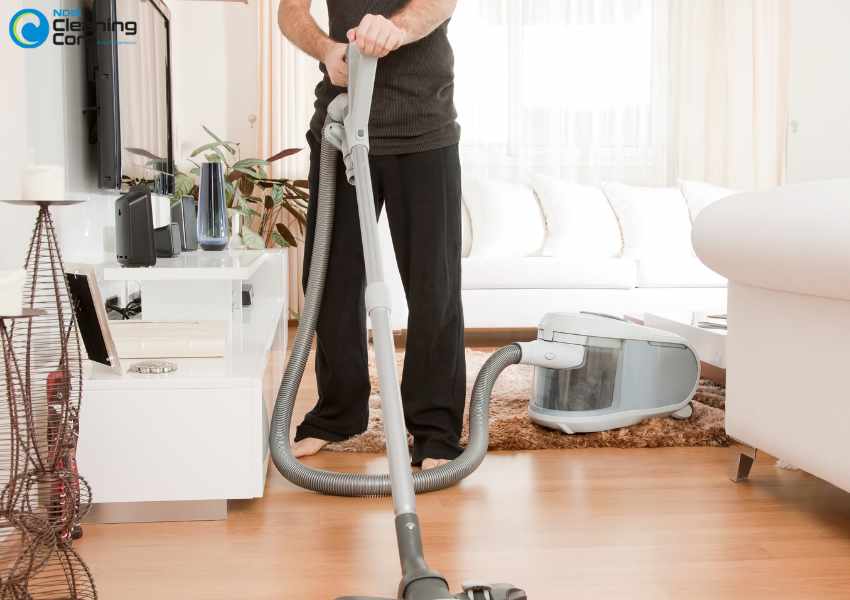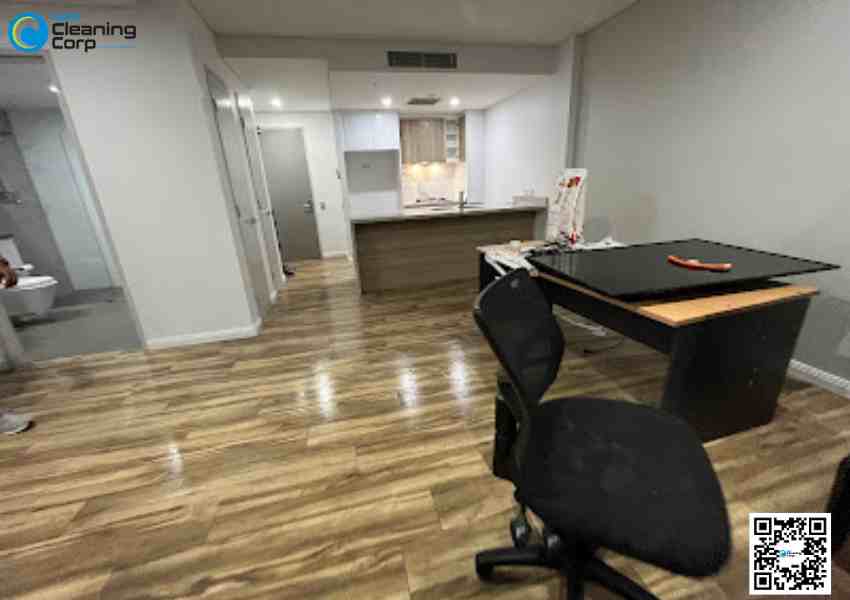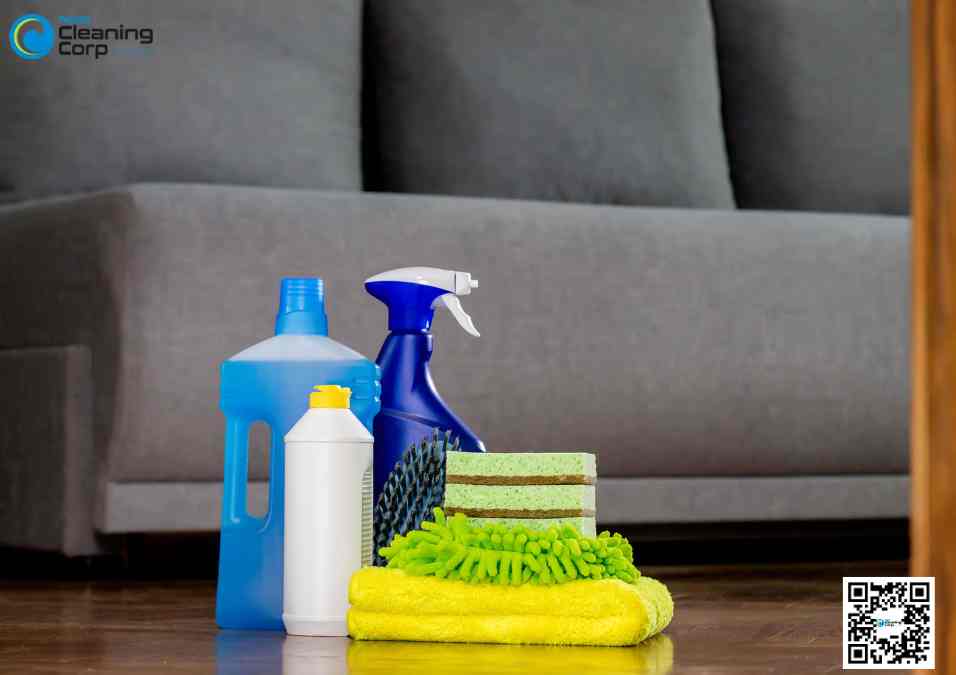Does the NDIS Fund Cleaning Services?
Yes. The NDIS does fund cleaning services — but it...
When we talk about NDIS participants, tidy rooms do not seem to be only organizational skills.
It’s about providing the NDIS participant opportunities to be the best they can be. A place where possibilities are endless and independence and mental wellness are achievable.
I have had the opportunity to see people struggle with their day-to-day tasks because their surrounding has not been conducive to them.
In such a case, being a NDIS participant is not easy and all my clients are scattered because of it. but, I am the owner of NDIS Cleaning Corp. so I can work with countless clients.
The one thing I can empathize with people I have spoken to is that for a lot of participants, the organization of their space is paramount and it goes beyond comfort.
Rather it distresses them and allows them to function and operate fully.
This post will explain further the importance of cleanliness for NDIS participants and how they can manage to maintain the space.
What I can do is show my examples of how they can improve their mobility and access easier from around clutter, to enhancing their independence.

The participant’s mental health will improve, so will their focus.
I have too witnessed participants become more anxious when their homes were messy.
Let’s consider Sarah for example. When I first met Sarah, she was a participant who was very anxious with all her untidiness in her house.
There are excessive amounts of boxes, random piles, and narrow hallways which made the relaxing process challenging.
Sarah advised that when she attempts to focus on a task, she ends up in a daydream and feels loads of weight on both her shoulders.
Her anxiety was very high and was interfering with her day-to-day activities.
Again you focus getting her to start basic tidying chores around her house where we started with moving furniture and reorganising her living room, worked wonders for her and she noticed a tremendous difference.
She said that her anxiety was much less, and she was able to manage it well.
She claimed that she was able to manage what went on around her in a better manner and that made her feel peaceful, composed and clear headed.
It’s not simply about how nice a space may appear; having a clean and arranged space can create an environment that will tremendously benefit a person’s mental health.
Research backs this up. There is evidence to suggest that by sorting out the clutter in a room, you can reduce stress, increase concentration, and even improve working memory.
An uncluttered space allows patients like Sarah to think clearer and feel more empowered.
A Safer Place
Now, this is where there is a greater need for security.
A disorganized home can be a serious danger for NDIS participants who are wheelchair users, such as John. I will reflect on the time when John first got in touch – his house appeared to be an absolute mess, with old furniture, boxes, and cords lying all around. So, this way, it was not just complicated for him to move around a space, it was dangerous as well. Because of having limited movement, there was always the possibility of him tripping, or bumping into something or simply, it was a cause of stress. On the other hand, after younger him’s home went through a decluttering and reorganizing makeover, everything became safe and better. Everything was cleaned up, the furniture was relocated so that there were no chances of areas not spaced out well, and unnecessary items were also removed. Well, it didn’t take long along for it to happen, did it? Everything had changed remarkably. He was able to move around , which was something he previously found difficult to do, but more importantly, he felt safer. Having everything neat and clean in its right place, makes it easier to be mobile and safe since there less to work with. For most NDIS participants, these sorts of small things make a huge difference in their physical safety and space in which they feel in control of themselves.
It is important for a person to feel like they own and control a particular space.
Such is the case when NDIS participants like Lilly begin to clean and organize their homes, they start to develop a sense of self ownership over their homes.
Lily had always had a hard time,’ unchaining’ form the idea of having a messy aura.
But once we worked with her, and created the different systems that would enable her to be able to keep her space in order, it dramatically changed the game.’
As told to me by Lily herself, “I never understood The importance of such a thing until when I saw for myself how much less stress I would have ended up dealing with.”
She became more dependent on her own life, and that spurred her upbringing more self confidence.’
Being able to not have to rely on anyone for help, or having to do anything in order to clean the area that she was using made her feel like an achiever in some way.
For all it matters, it was about being able to take control of their day-to-day life.
Every time she was able to feel a little sense of control over the space she was working in, she felt empowered, and because every time she felt more empowered, she was able to overcome many other obstacles which she faced with her new found confidence.’
Moving on, let’s look at everyday exercises.
For many NDIS participants, something so simple as being taught how to organize the kitchen is life altering because it changes their perspective.
Consider Tom. He suffers from limited lower limb movement, hence cooking was a task that troubled him daily.
An example could include disarray in his kitchen. Within the cooking space, there were items that could not be reached as well as the room configuration that inhibited movement.
We reorganized the layout of his kitchen to make sure everything was easy to reach.
To reach shelves more easily, we added them to the kitchen and re-arranged items in a sensible way while getting rid of any excess.
What did we gain from this? The task of assembling Tom’s meal took less time, more simplicity as well as drastically lower levels of preparation anxiety.
He told me how those minor alterations made a majority of his daily chore hassle-free.
He was no longer looking for things, he automatically reached out to the last cabinet for the necessary item.
He began worrying more about what was important – his nutrition.
I was even more shocked – He remarked, “I feel so much more independent now. I need help for things which I used to.”
A neatly arranged home makes daily tasks easier for people with cognitive or physical disabilities who require support from the NDIS.
It cuts down on the support worker’s time spent on basic assistance and offers more opportunities in shaping their schedules.
A more organized home implies that moderate changes allows smooth and better living.
The Role of Cleanliness and Order in Social Engagement of NDIS Participants
One aspect that does not get quite as much focus as it should perhaps is what I like to call cleanliness bias of a person. In the case of NDIS participants, I have noticed that many are more comfortable socially in clean and organized spaces.
I have worked with many clients who would rather not invite family and friends over for a get together due to embarrassment of their untidy living conditions that they’ve unfortunately created for themselves.
But one thing that I know and have read aplenty is that the more organized a person is, the more likely they are to socialize and form relationships.
Let’s take Mark for example. Mark is an NDIS participant who also happens to have autism, which caused him to invariably seclude himself more at home than he desired.
Many perhaps look down upon folks such as Mark and think that they’re antisocial, when in reality, their conditions make it extremely difficult for them to even gather the courage to lay out an invitation.
One of my clients, as an example, who spent most of his time in the living room could never enjoy his own home as it was always uncomfortable because of the clutter.
But then, one day, we worked together to tidy up. Mark being a fan of cleanliness would help the most.
However, the only bit I had to do was to encourage him. Mark told me that after everything was organized, he felt so much more at ease.
He called several of his friends over after a long time; they had a great time together.
“Having people around makes me so happy, I had no idea it would help my self esteem so much,” Mark said.
This simple act of rearranging his furniture not only boosted Mark’s comfort levels in his house, but it also increased the depth of his relationships and the amount of socialisation he engaged in.
For someone like Mark, who had been feeling down and lonely, living in a neat environment was a solid start to establish meaningful relationships.
Not only did it enhance interpersonal skills, but also improved his mental wellbeing, feeling accepted and less worried about social contact.
Still, there is another important issue to address – the extent to which cleanliness can reduce social stigma.
I have witnessed lots of NDIS participants who tend to be looked down upon because their residences are untidy and unkempt.
Unfortunately, messiness is generally regarded as a no care attitude by society, and because of that people tend to feel shy or even ashamed of inviting guests over because they are participants.
A disorganized and sloppy environment can completely change that narrative.
Let’s consider Lisa, another participant I worked with.
It is written that every woman has to stand by the man. That explains why Lisa did what she did and compromised on her pride for the sake of love.
Clearly, she was so concerned about her husband’s affection for her having a clean house that she kept herself restricted from going out and interacting with people along with her family members.
Her struggles with isolation and embarrassment were real. And in order to alleviate them, we agreed upon taking the responsibility of folding clothes, fixing up designated areas along with thoughtful restructuring of her house’s layout.
Lisa’s feelings were joint with many of hers who shared the same feeling, “it was girls toformation to transition back to an organized alien space which she was never comfortable returning to for the last fortnight or so.” That is something I completely understand, now to say the least, holding this clutter filled female universe entirely inside you cannot be easy.
Lisa’s heavy bag packed with a lot of memories was perfectly efficient in decreasing the amount of pressure that is invariably imposed on people with dirty homes.
To add to that, never having to fear how someone would judge her, I saw the freedom and love on Lisa when she invited close ones for gatherings at her newly refreshed house which she decorated especially for them.
She no longer had to isolate herself from the world, instead, she painted a new perception of hers – a perception that welcomed love with warmth.
A clean environment minimizes risks such as having barriers that may lead to a fall allowing participants with moving disabilities to freely navigate within the area without concerns of hazards.
In my perspective, it is a remarkable improvement. For instance, John who is wheelchair dependent is at a high risk of injury due to the consideration of falling over objects, but after removing furniture from the windows, his risks have been lowered considerably.
According to the NDIS participants themselves, can a clean home environment contribute positively to their mental health conditions?
Of Course: Without even a shadow of doubt! Research has indicated that a well kept environment lowers anxiety; improves concentration and general health.
Just look at Sarah—her anxiety decreased dramatically after we helped her tidy up her living space.
What tips would you offer to NDIS participants when they try to sort out their spaces?
Little by little, tell others what to do. Take items off of pathways. Create tags so things can be located quickly. Get shelves that are within people’s reach.
I usually recommend doing it in phases, like focusing on just one section, one room to sort out, it doesn’t sound as daunting.
Yes, for sure! In a clean and friendly area, the willingness to socialize arises, feeling less intimidated to invite other people and more inclined to socialize.
Boosting social interactions and mental health can be done by maintaining a clean environment, just like in Mark’s case.
Cleaning should ideally be part of everyday undertaking that concurs with the individual’s capabilities.
Some require constant organization while others can manage a once a week cleaning day. What matters is that a person has the motivation to come back to a safe and organized environment and that dealing with the clutter becomes second nature.
Properly arranged spaces are not relevant solely to how the decor looks, there are more purposes that they serve, such as the importance of the decor with relation to the NDIS participants.
Feeling supported mentally when their living arrangement is stable goes hand in hand with being self-reliant and feeling safe amongst relations.
The items at their home are a source of motivation for the NDIS members, as they feel safe and in control of their environment.
Taking the extra time to personalize their living environment can bring about a positive impact with all areas of their life, therefore improving much more than the decoration.
The impact a well-cleaned house brings about is not limited to simply avoiding stress, or enhancing safety, but rather goes much deeper than that.
Let’s encourage more participants to embrace the power of a clean environment and experience the positive impact it can have on their daily lives.
Having a clean place facilitates everyone not merely in the sense of cleanliness but rather focuses on people’s growth and healthy engagement.

Yes. The NDIS does fund cleaning services — but it...

Alright, let’s get straight into it. These are the questions...

NDIS cleaning services are specifically designed to cater to the...

The role of professional cleaning in maintaining a safe and...

Studies consistently show that living in a clutter-free, organized space...